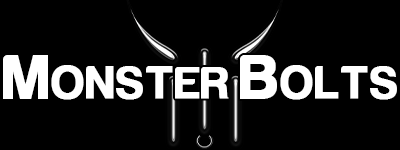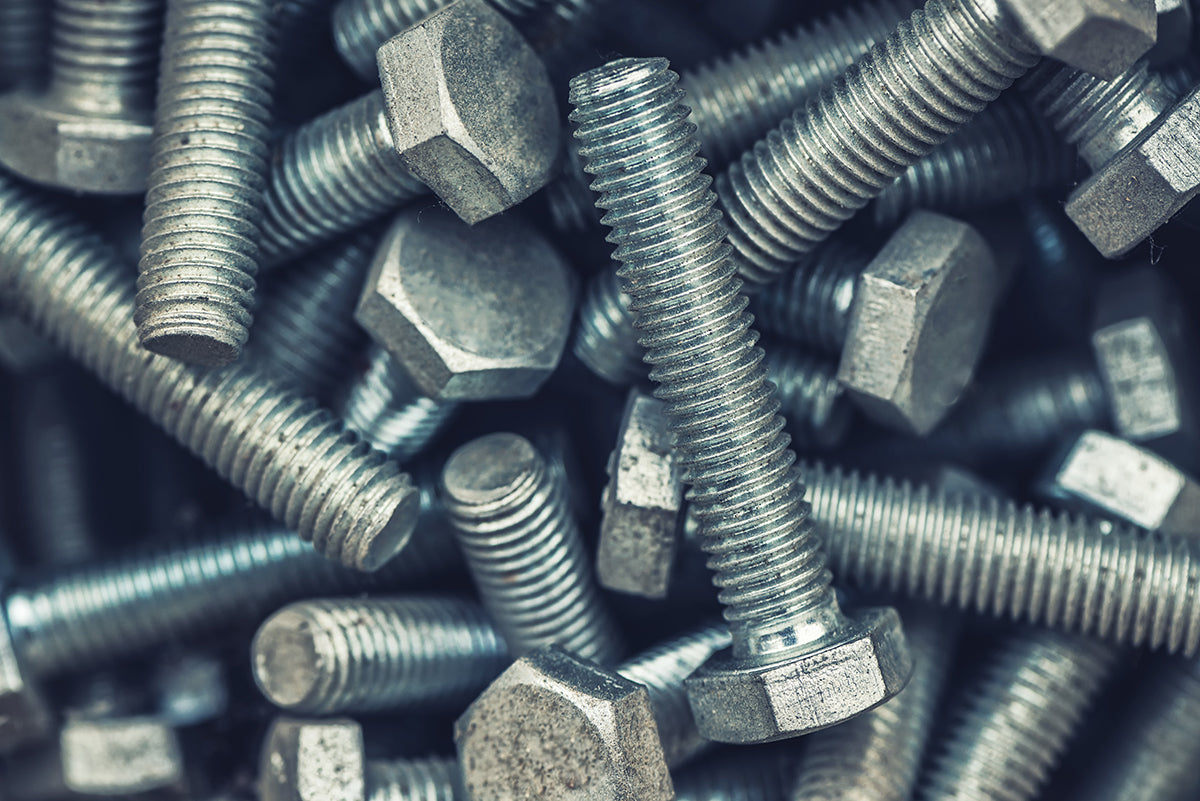
Quick answer: Hex bolts (aka hex cap screws) are six-sided head fasteners used with a nut or tapped hole for high-strength joints. Choose by diameter, length, thread pitch, grade, and finish/material. Not sure which grade? See our guide: Bolt and Nut Grades Explained.
Why choose hex bolts?
- High strength: Available in Grade 5, Grade 8, and ultra-high strength L9
- Serviceable: Easy to torque, inspect, and replace
- Tool-friendly: Works with sockets, wrenches, and torque tools
- Versatile: Use with tapped holes or paired US nuts & washers / Metric nuts & washers
- Finishes & materials: Zinc, galvanized, alloy steel, A2/A4 stainless, more
Shop Hex Bolts
Need matching hardware? US nuts & washers • Metric nuts & washers
Hex Bolt Size Guide (US / Inch)
Includes typical wrench (across-flats) sizes per ANSI/ASME for hex cap screws and common UNC/UNF thread pitches.
| Nominal Diameter | Typical Wrench Size (AF) | Coarse Thread (UNC) | Fine Thread (UNF) |
|---|---|---|---|
| 1/4" | 7/16" | 1/4-20 | 1/4-28 |
| 5/16" | 1/2" | 5/16-18 | 5/16-24 |
| 3/8" | 9/16" | 3/8-16 | 3/8-24 |
| 7/16" | 5/8" | 7/16-14 | 7/16-20 |
| 1/2" | 3/4" | 1/2-13 | 1/2-20 |
| 9/16" | 13/16" | 9/16-12 | 9/16-18 |
| 5/8" | 15/16" | 5/8-11 | 5/8-18 |
| 3/4" | 1-1/8" | 3/4-10 | 3/4-16 |
| 7/8" | 1-5/16" | 7/8-9 | 7/8-14 |
| 1" | 1-1/2" | 1-8 | 1-12 |
Hex Bolt Size Guide (Metric)
Coarse pitches per ISO for common diameters and typical metric wrench (across-flats) sizes.
| Nominal Diameter | Typical Wrench Size (AF) | Coarse Pitch |
|---|---|---|
| M6 | 10 mm | 1.0 |
| M8 | 13 mm | 1.25 |
| M10 | 17 mm | 1.5 |
| M12 | 19 mm | 1.75 |
| M14 | 22 mm | 2.0 |
| M16 | 24 mm | 2.0 |
| M18 | 27 mm | 2.5 |
| M20 | 30 mm | 2.5 |
| M22 | 32 mm | 2.5 |
| M24 | 36 mm | 3.0 |
How to choose the right hex bolt
- Load & strength: Pick the grade for the job (e.g., Grade 5 general, Grade 8 high-load, L9 ultra-high strength). See our grades guide.
- Environment: Use stainless (A2/A4) or coated/galvanized steel for corrosion exposure.
- Threading: Full thread for grip along the length; partial thread for shear across the unthreaded shank.
- Fit & service: Confirm wrench clearance and access for torque tools.
FAQs
What’s the difference between a hex bolt and a hex cap screw?
They’re often interchangeable. Technically, hex cap screws have tighter head tolerances and a washer face; hex bolts may not.
How do I measure a hex bolt?
Measure diameter (thread OD), length from under the head to the tip, and thread pitch (UNC/UNF for US or mm for metric).
When should I use full-thread vs partial-thread?
Use full-thread for maximum clamping range. Use partial-thread when the unthreaded shank needs to bear shear loads or act as a locator.
What nuts and washers should I pair with hex bolts?
Match the thread system (US vs metric), diameter, and grade. Shop US nuts & washers and Metric nuts & washers.
Which grade should I choose?
Grade 5 for general use, Grade 8 for higher loads, L9 for ultra-high strength, and A2/A4 stainless for corrosion resistance.


1 comment
Daniel Chan
What is the raised circular surface underneath a hex head screw used for?